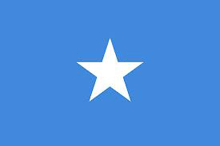
Building Trust in AI through Justice


Array
(
[thumbnail] => https://s42831.pcdn.co/wp-content/uploads/2022/09/hero-placeholder-150x150.png
[thumbnail-width] => 150
[thumbnail-height] => 150
[medium] => https://s42831.pcdn.co/wp-content/uploads/2022/09/hero-placeholder-300x129.png
[medium-width] => 300
[medium-height] => 129
[medium_large] => https://s42831.pcdn.co/wp-content/uploads/2022/09/hero-placeholder-768x329.png
[medium_large-width] => 768
[medium_large-height] => 329
[large] => https://s42831.pcdn.co/wp-content/uploads/2022/09/hero-placeholder-1024x439.png
[large-width] => 1024
[large-height] => 439
[1536x1536] => https://s42831.pcdn.co/wp-content/uploads/2022/09/hero-placeholder.png
[1536x1536-width] => 1400
[1536x1536-height] => 600
[2048x2048] => https://s42831.pcdn.co/wp-content/uploads/2022/09/hero-placeholder.png
[2048x2048-width] => 1400
[2048x2048-height] => 600
[gform-image-choice-sm] => https://s42831.pcdn.co/wp-content/uploads/2022/09/hero-placeholder.png
[gform-image-choice-sm-width] => 300
[gform-image-choice-sm-height] => 129
[gform-image-choice-md] => https://s42831.pcdn.co/wp-content/uploads/2022/09/hero-placeholder.png
[gform-image-choice-md-width] => 400
[gform-image-choice-md-height] => 171
[gform-image-choice-lg] => https://s42831.pcdn.co/wp-content/uploads/2022/09/hero-placeholder.png
[gform-image-choice-lg-width] => 600
[gform-image-choice-lg-height] => 257
)

This year, CIC’s Somalia team has been closely analyzing peacebuilding efforts in the country. Most recently, we took a close look at the Somali New Deal Compact with an eye to its effectiveness as a peacebuilding tool. With a conference on the Compact scheduled to take place in Copenhagen this November, it is important to reflect on how this framework was developed and to study how it has been implemented to date.
On September 16, 2013 the Federal Government of Somalia and the European Union hosted a conference in Brussels to endorse a New Deal Compact for Somalia. This agreement, backed by €1.8 billion is intended to increase the alignment of international assistance to Somalia’s own national priorities and encourage mutual accountability. This agreement followed two major shifts. First, there was a growing recognition within the international development policy community that traditional aid practices had failed to create an environment conducive to confidence building. As a result, in 2011 the OECD donors and the g7+ agreed to align aid to “country-led and country owned transitions out of fragility” as part of the “New Deal Engagement in Fragile States.”
Second, the 2012 election of President Hassan Sheikh Mohamud generated great enthusiasm in both Mogadishu and donor capitals about the prospects for peacebuilding in Somalia. At the same time as the newly elected Federal Government of Somalia (FGS) was looking to assert control over the country’s political and aid priorities, international donors were exhibiting an increased appetite for supporting the fledgling government. It was in this context that Emilia Pires (then chair of the g7+) visited Mogadishu and encouraged President Mohamud to pilot the New Deal initiative, making Somalia one of the first fragile states to partner in the development of a Somali New Deal compact.
From the start, the Compact faced a string of implementation hurdles. First a Somali Central Bank scandal and the subsequent resignation of the Central Bank Governor rocked donor confidence. Then a FGS cabinet reshuffle resulted in a whole new set of Somali political actors (including a new Prime Minister) and another round of political deal making. On top of all this, when rapid on-budget donor support and aid realignment did not follow the Brussels Conference, FGS confidence in the donor framework took a major hit.
Despite these initial setbacks, 2014 has seen important progress on implementation. With the FGS launching its Vision 2016 strategy to reach agreement on a final constitution and the prime minister presenting the 2014 Work Plan to parliament, there is a sense of renewed momentum. Meanwhile, portions of the Somalia Development and Reconstruction Facility (SDRF), the mechanism by which the FGS guides peacebuilding and statebuilding activities in Somalia, are currently online, while others remain in development.
While there are positive signs of progress, there remains deeply rooted skepticism on both sides. The Compact (and the way it was developed) highlights some of the inherent trade-offs that lie at the heart of the relationship between Somalia and the donor community. Among these trade-offs are a tension between the need for both a linear technical process and a non-linear Somali political process, as well as a tension between the broader need for donors to align their aid and practices to Somali objectives, while meeting their existing commitments and strategic objectives. Additionally, there is a trade-off between a Somali elite need for space to make political deals and build confidence using the resources at their disposal and a donor need to account for and justify the distribution of aid to domestic audiences. In the coming weeks, CIC will discuss these trade-offs, and their implications, in this space.


Subscribe to our newsletter and receive regular updates on our latest events, analysis, and resources.
"*" indicates required fields